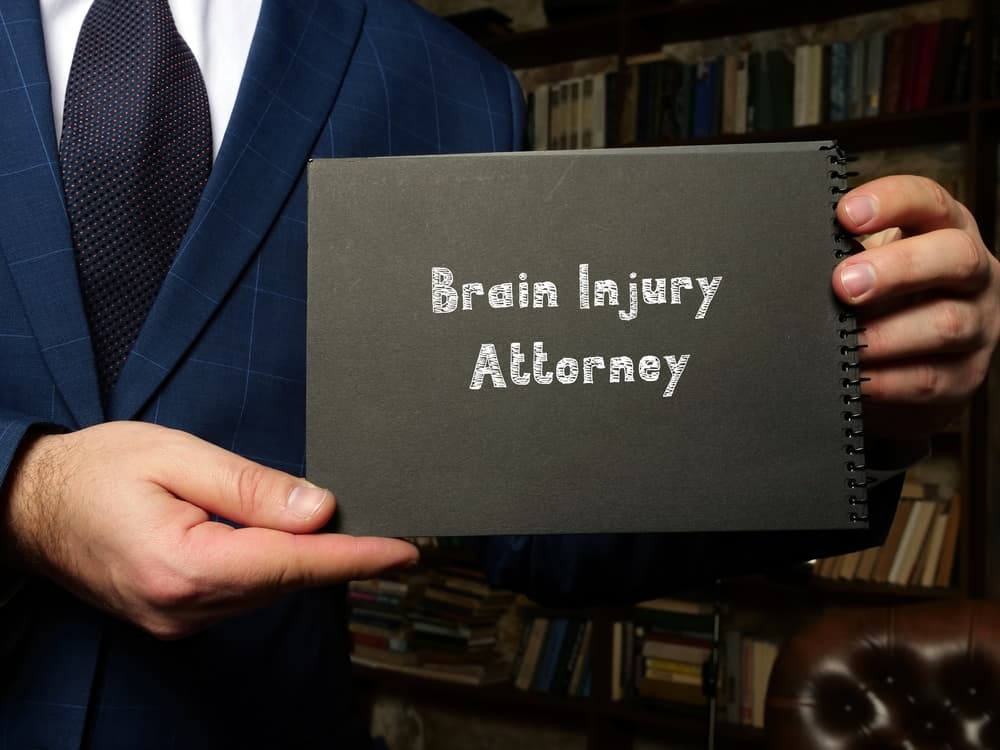Head and brain injuries that accident victims suffer may lead to significant and ongoing medical treatment, along with tremendous pain, suffering, and inconvenience.
In a personal injury claim or lawsuit that involves a traumatic brain injury (TBI), accident victims may receive monetary compensation, including damages for their related medical expenses, lost earnings, mental anguish, and emotional distress.
If they suffer a permanent TBI, they may also be eligible to recover compensation for their ongoing and anticipated medical expenses and symptoms.
The amount of financial compensation you can recover in a brain injury claim or lawsuit will depend on the extent of your injuries, the cost of your treatment, and other factors.
While some brain injury cases resolve adequately through settlement offers from insurance companies, others proceed through litigation to a civil jury trial or alternative dispute resolution (ADR) proceeding, such as binding arbitration or mediation.
In addition to obtaining all of the medical treatment that you need for your head or brain injury, you must consult an experienced personal injury attorney in your area as soon as possible after the occurrence.
Your attorney can thoroughly investigate your accident's circumstances and handle every step of the legal process for you.
At the same time, you focus your attention on making a full medical recovery. For example, your attorney can retain a certified accident reconstructionist if the insurance company is disputing fault or liability for the occurrence.
Additionally, your traumatic brain Injury lawyer in Chicago can gather important documents, submit a personal injury claim to the at-fault party's insurance company on your behalf, and aggressively negotiate for the fair settlement compensation you deserve.
If litigation becomes necessary in your case because the insurance company refuses to compensate you fairly, your lawyer can represent you at all litigation proceedings in the court system and advocate for the highest amount of monetary damages available in your personal injury case.
Also, throughout the process, your attorney can address all of your concerns and ensure you are aware of all new developments in your case, including increased settlement offers from insurance company representatives.
Schedule a Free Initial Consultation Today!
Accidents Due to Negligence that Can Cause Severe Brain Injuries

When an accident victim hits their head in an accident, the chances are good that they will suffer a TBI. TBIs often come with painful and persistent symptoms, including migraines and memory loss (both short-term and long-term), some of which may affect the accident victim for the rest of their life.
Common occurrences that may lead to a TBI include auto accidents, pedestrian accidents, escalator and elevator accidents, slip and fall accidents on someone else’s premises, boating accidents, and many others. You can sustain a TBI anytime you suffer head trauma or a violent jolt of your head, no matter what the circumstances might be.
If you or someone you care about suffered a TBI in one of these occurrences, you should consult a personal injury attorney in your jurisdiction as quickly as possible.
Your attorney can present all of your legal rights and options to you in clear, easy-to-understand terms. Your attorney can identify the best option for your case and begin pursuing the financial compensation you need for your severe head or brain injuries.
Seeking Medical Treatment for a Serious Head or Brain Injury
The single most important step you can take after suffering a head or brain injury in an accident is to secure the medical treatment that you need to make a full recovery.
Common examples of ongoing medical treatment following a head injury include:
- Attending an appointment with your primary care physician as soon as possible after the occurrence
- Attending appointments with medical specialists, such as neurologists
- Obtaining imaging studies, including head and brain scans, to determine the extent of the brain damage you suffered in the occurrence
- Undergoing surgery or other medical procedures
- Attending all requested follow-up medical appointments
- Refraining from significant gaps in your medical treatment
- Refraining from discharging yourself from a medical treatment provider or facility’s care
By seeking ongoing medical care prescribed by healthcare providers, you significantly increase your chances of achieving a full medical recovery.
Additionally, you demonstrate to the at-fault party's insurance company that you took your medical treatment seriously, that your medical treatment was necessary under the circumstances, and that your TBI is a serious matter. Therefore, the insurance company will more likely compensate you favorably for your TBI.
Proving the Legal Elements of a Head or Brain Injury Case
To maximize your chances of obtaining favorable financial compensation in a head or brain injury case, retain experienced legal counsel as soon as possible.
Your attorney can satisfy the legal elements of proof in your case by gathering important documentary evidence (including medical treatment records and bills) and retaining experts who can testify to support your brain injury claim or lawsuit.
In a head injury case, as with any other personal injury claim or lawsuit, the injured accident victim has the sole legal burden of proof. Therefore, they must prove several legal elements. Otherwise, they cannot recover any financial compensation for their head injuries and other accident-related losses.
First, the accident victim must establish that the at-fault entity or individual owed them some legal duty of reasonable care.

For example, if the accident victim sustained their head injury in a car or truck accident, the other driver owed them a duty to follow all traffic laws and regulations and to drive carefully, reasonably, and prudently under the circumstances.
Additionally, an injured accident victim must legally establish that the other party negligently and irresponsibly violated their duty of care by behaving unreasonably. For instance, if the accident victim suffered a head injury in an auto accident, the at-fault driver might have broken some traffic law, such as by engaging in road rage, failing to yield the right-of-way at the appropriate time (such as at a traffic intersection), or exceeding the posted speed limit.
In addition, the accident victim must establish that both the occurrence and head injury directly resulted from the other party's negligence.
For example, in the context of a car accident, the accident victim must demonstrate that as a direct and foreseeable result of the other driver's negligent behavior, both the subject crash and their head injury directly resulted.
In some head injury cases, insurance companies and their adjusters try to dispute a causal connection between the occurrence and the alleged head injury.
For example, the adjuster might argue that the accident victim is exaggerating their symptoms or that their claimed head injury resulted from a pre-existing accident, injury, or medical condition, rather than the accident in question.
In these situations, your personal injury lawyer may retain an expert medical provider, such as a doctor who treated you for your head injury. That medical provider can physically examine you and draft a medical report causally relating your head injury to the subject occurrence. In addition, a medical provider may testify your head or brain injury is permanent.
An expert medical provider may draft reports or testify as witnesses during a deposition or trial. The judge or jury can use this evidence to evaluate your claim when determining the amount of compensation to award you.
Maximizing the Financial Compensation You Receive for a Severe Head or Brain Injury
Victims of serious head injuries may have to undergo invasive medical procedures, attend ongoing medical appointments, and experience prolonged pain and suffering – sometimes for the rest of their lives.
For example, if an accident victim suffers post-concussive migraine syndrome, their migraine condition may stay the same or become significantly worse over time. As a result, the accident victim might need to rely on pain management treatment to control their symptoms.
Fortunately, accident victims who can establish their legal burden of proof may receive compensation for both their economic damages and intangible losses.
Since every head injury is different, financial compensation can differ substantially from case to case.
The monetary damages you receive in your head injury case will likely depend on:
- The severity of your head injury
- The medical treatment you undergo
- Impairments or disabilities you experienced
- Whether your head injury will heal completely
- Whether you missed work
- The effects of your head injury on your general life and relationships
In addition, if a healthcare provider determines you suffered a permanent head injury that may affect your memory, cognitive abilities, or your ability to work, you may be entitled to receive significant financial compensation.
A personal injury attorney in your area can calculate the damages you deserve for your past and future losses.
First, a head injury victim may be entitled to receive financial compensation for all of their past and anticipated medical costs. In addition, if they had to take time off work following the injury, they can claim lost earnings.
Additionally, if their cognitive impairments prevent them from working at their former job or if they have to take on a lower-paying job due to the severity of their head or brain injury, they can present a successful claim for loss of earning capacity.
In addition to recovering their economic damages and out-of-pocket costs, an accident victim can pursue financial compensation for their intangible losses.
Non-economic damages compensate accident victims for:
- Past and anticipated pain and suffering - Brain injuries can cause much pain and suffering for victims, as they might struggle with basic tasks or communication, limiting their work and activities.
- Mental distress and emotional anguish - Brain injuries can cause mental disorders or victims might develop mental health issues due to the new struggles they face.
- Permanent cognitive impairments - Losing the ability to read, communicate, process information, follow directions, or other cognitive functions can be devastating.
- Long-term or lifetime care costs - Some victims of severe brain injuries require constant care and assistance due to debilitating disabilities.
- Inconvenience - Brain injuries can make life significantly more challenging in nearly every way, causing additional stress and inconvenience.
- Loss of the ability to use a body part - If your injury disrupts the signals from your brain to certain parts of your body, you might experience paralysis.
- Permanent disability - Many brain injury victims experience lifelong effects and are never the same.
The intangible losses from a brain injury play a major role in compensation calculations. These losses do not have an automatic price tag, and insurance companies often grossly underestimate the value of non-economic damages.
You need an attorney who understands the effects of brain injuries and can accurately assess and prove the full compensation you deserve for both economic and non-economic losses.
Contact a Personal Injury Lawyer in Your Area Right Away
If you or someone you care about suffered a TBI due to someone else's negligence, seek out an attorney who can aggressively represent you throughout your case. Additionally, you want a lawyer who has handled TBI cases before and has achieved successful case results for their clients.
In a TBI case, as in any other personal injury claim, an accident victim must file a lawsuit within two years of their accident.
According to the state statute of limitations, if the accident victim fails to take timely legal action in their case, the court will prohibit them from recovering any monetary damages for their TBI and other accident-related losses.
A knowledgeable and experienced Chicago personal injury attorney can immediately investigate your accident circumstances and pursue the monetary recovery you deserve for your TBI and related losses.
Your attorney can also aggressively negotiate with insurance company representatives to pursue the full settlement compensation you deserve.
Finally, if litigation becomes the only remaining option in your case, your attorney can file suit on your behalf in the court, continue settlement negotiations with adjusters, or, if necessary, resolve your case at a civil jury trial, mediation hearing, or binding arbitration proceeding.
Every step of the way, your attorney will advocate for your best interests and pursue the justice and closure you deserve to recover financially for your head or brain injury.



